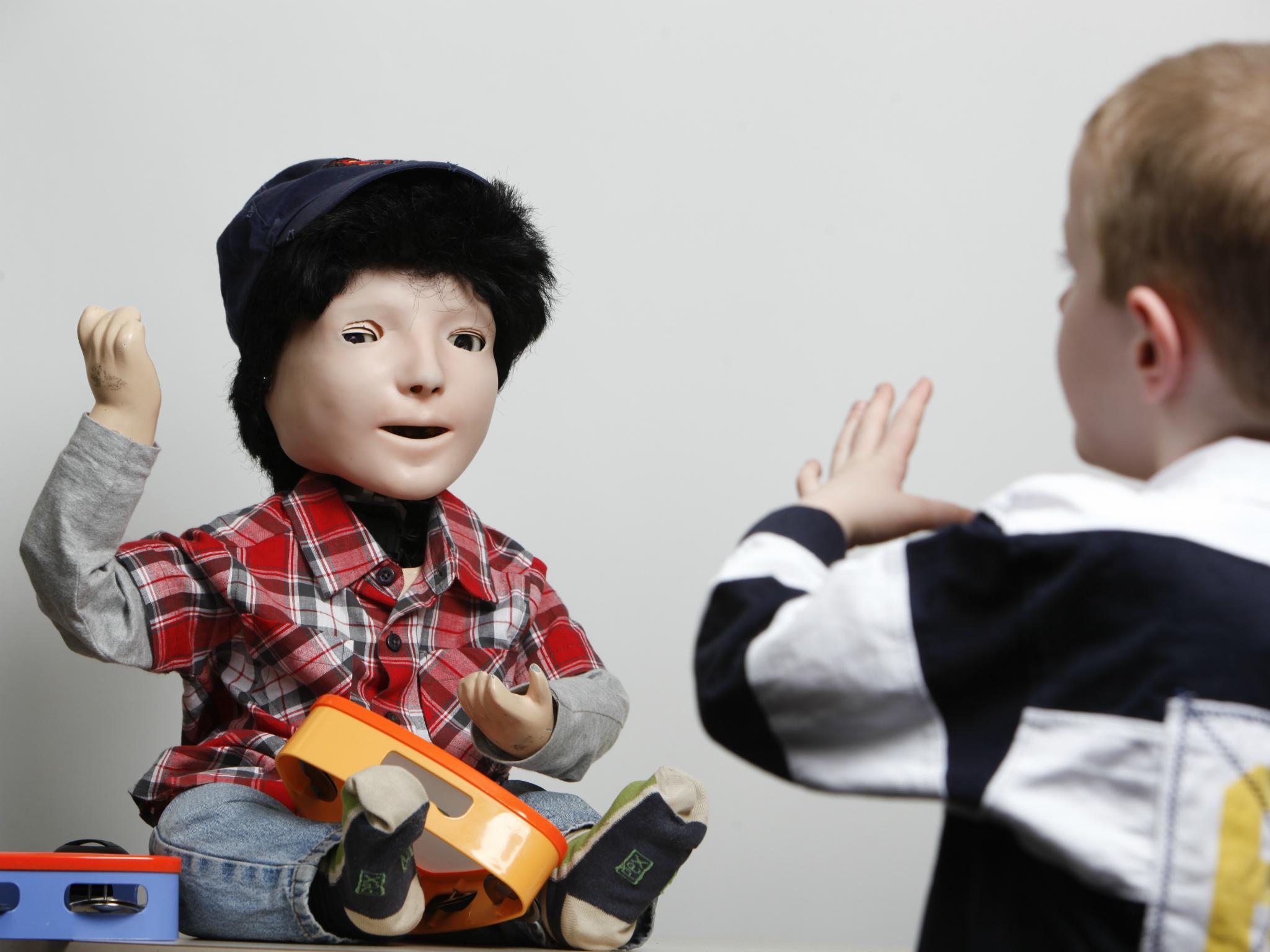World Autism Awareness Day: Humanoid robot with skin sensors to help children in NHS trial
'Kaspar helps bridge the gap with other children, teachers, family members and therapists'

Your support helps us to tell the story
From reproductive rights to climate change to Big Tech, The Independent is on the ground when the story is developing. Whether it's investigating the financials of Elon Musk's pro-Trump PAC or producing our latest documentary, 'The A Word', which shines a light on the American women fighting for reproductive rights, we know how important it is to parse out the facts from the messaging.
At such a critical moment in US history, we need reporters on the ground. Your donation allows us to keep sending journalists to speak to both sides of the story.
The Independent is trusted by Americans across the entire political spectrum. And unlike many other quality news outlets, we choose not to lock Americans out of our reporting and analysis with paywalls. We believe quality journalism should be available to everyone, paid for by those who can afford it.
Your support makes all the difference.Kaspar, a humanoid robot designed to help children with autism, is set to be trialled by the NHS.
The child-sized robot was created by researchers at the University of Hertfordshire and is programmed to respond to touch.
Kaspar is designed to play games with children, using a collection of skin sensors placed on various parts of its body to “encourage certain tactile behaviours” and discourage “inappropriate” ones.
It will be used to teach five-to-ten year-olds who have recently been diagnosed with Autism Spectrum Disorder (ASD) how to socialise and communicate.
This is because research indicates that early intervention increases the likelihood of improved long-term outcomes for children with the condition.
The initial two-year clinical trial will involve 40 children, and will be delivered by Hertfordshire Community NHS Trust and funded by the National Institute for Health Research, the NHS’ research arm.
The study will compare the social skills of a group of children who interact with Kaspar and a therapist, with those of another group of children who only interact with a therapist.
“Research has explored the use of Socially Assisted Robots (SARs), such as Kaspar, in supporting the social and emotional development of children with autism,” said trial coordinator Dr Karen Irvine.
“The overall key aim of this study, and all the work with Kaspar, is to help children with autism explore basic human communication and emotions as well as learn about socially acceptable physical interaction.
“Children with autism can sometimes find this kind of interaction difficult so Kaspar helps bridge the gap with other children, teachers, family members and therapists.”
According to the National Autistic Society, there are currently 700,000 people with autism in the UK. This Sunday, 2 April, marks the ninth annual World Autism Awareness Day.
Join our commenting forum
Join thought-provoking conversations, follow other Independent readers and see their replies
Comments